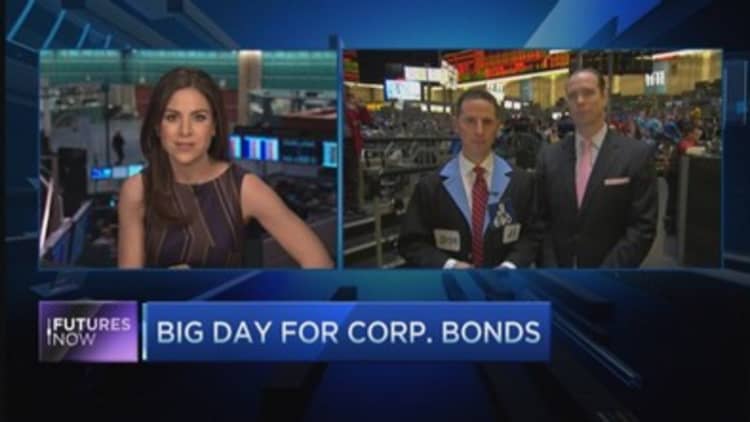The dollar touched an 11-year high against a composite of major currencies on Tuesday but gave up those gains ahead of major U.S. economic reports and the coming European Central Bank meeting later this week.
The dollar index has gained 5.7 percent since the beginning of 2015, helped by the U.S. economy's better performance against other major world economic regions and relatively higher U.S. interest rates. The greenback has been range-bound for the past month, however, as investors have seen fewer catalysts to move the dollar higher.
The U.S. dollar index of a half dozen currencies traded against the greenback was last off 0.06 percent at 95.407 after peaking at 95.570, a level last seen in September 2003.
U.S. economic data is expected to portray improving U.S. labor and business markets, but February's harsh U.S. winter weather may yield disappointing readings in Wednesday's ISM services report and the government jobs report on Friday.
"Because of the weather patterns, it's really hard to say what happened with ISM and employment in the last month," said Boris Schlossberg, managing director at BK Asset Management in New York. "There is very little directionality. People are sitting on the sidelines."
The euro was last little changed against the dollar at $1.1181 after the dollar surrendered early gains against the euro on widening interest-rate differences. Traders were awaiting details of Europe's massive bond-buying program, due on Thursday.
Read More With dollar at 11-year high, here's what's next
"Markets are looking for the next impetus," said Dean Popplewell, chief currency strategist at Oanda in Toronto. "We may get that from the European Central Bank on Thursday or a pleasant spark on Friday from the non-farm payroll report."

Europe's central bank will finalize the details of its 1.1 trillion euro bond-buying program on Thursday and may start buying immediately afterward.
The dollar fell against the yen after an economic adviser to Japanese Prime Minister Shinzo Abe said the U.S. currency could not sustain more gains.
Etsuro Honda's comments pulled the dollar off a three-week high of 120.27 yen hit earlier because of a spike in U.S. debt yields. It last traded at 119.74, down 0.4 percent.

